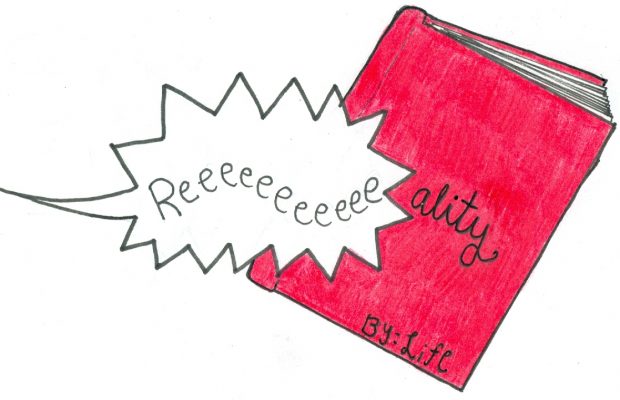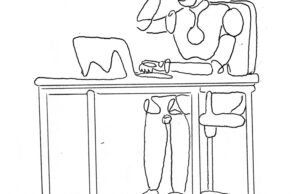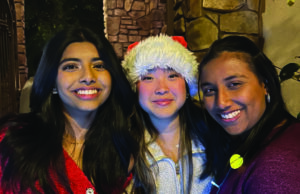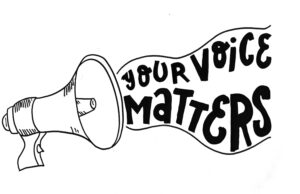Core literature books are educational not pornographic

The original opt-out policy — 6161.12, which was introduced in 2016 and remained omnipresent in the CVUSD board room for two years, has resurfaced as the new and reformed opt-out resolution: 6161.11. Last year, the board voted 3-1 to accept the controversial 6161.1 policy written by Trustee Sandee Everett, with former members Mike Dunn and John Andersen joining her to vote for the policy and and current President Betsy Connolly voting against. This policy stipulated the distribution of a district-wide handout specifying which books contained adult content using an asterisk and referencing a California Department of Education (CDE) list. Community lashback called for teachers’ rights in determining policy for their classrooms, and questioned the legitimacy of using a redacted CDE reference.
We are seeing the same trends that we saw last year, of the community polarizing into two vehement groups: one for and one against the policy. However, unlike last year, the tables have turned with the flip of the school board, bringing fresh animosity to the Tuesday meetings.
During public comments at the March 19 school board meeting, many people wanted to express their own opinions of the controversy. A statement made by Dr. Narissa Chew stood out in particular. “The selective books in question make my circle of people wonder whether the next teacher’s assignment could include pornographic movies, realizing Thousand Oaks is right next to the porn capital, San Fernando Valley. There are professional porn stars and unions which feed into a sizeable porn industry next door to us,” Chew said.
There are legitimate concerns, and then there is fear mongering and creation of material fact. Throughout the last two years, as the opt-out policy cyclically resurfaces and submerges in the local news cycle, board meetings have been bombarded with emotional claims and with a vehemence that can never and will never foster real conversation.
The selective books in question are novels that enrich the development of a well-rounded adolescent. High school is the bridge between childhood and the “real world,” and exposure to topics like sexual assault, female subversion and domestic abuse helps us understand how to deal with a perpetually oppressive power structure. These novels teach us how to listen, to understand and to stand with dignity in our opinions and beliefs.
Over the past two years, books like “Brave New World,” “Snow Falling on Cedars” and “Bluest Eye,” have been arbitrarily categorized as pornography by board members and community members alike. If pornography is, in fact, literature that contains a meaningful and powerful message and that challenges a student to expand their intellect and personal horizons, then all power to it. However, the definition of pornography according to Merriam Webster is “the depiction of erotic behavior (as in pictures or writing) intended to cause sexual excitement,” and it is very disturbing if people view these pieces of literature as erotic or as something that is meant to be indulged in. The point is, this is a skewed claim that has been used inappropriately far too many times, and that has unnecessarily diverted community attention away from practicality and reason.
At the most recent meeting on April 2, the policy appeared on the agenda as an action item for the board to vote on and the public to comment on. Several teachers and community members stood in support of the approval of a much more relaxed policy, which removes the CDE asterisk and takes into consideration the requests of teachers in the creation of the policy.
One community member, Carrie Howard, talked about her history with literature and how it related to her past, “I come to to the board to speak not as a parent, or as a former public school teacher, but the survivor of childhood sexual molestation as well as a violent sexual assault. In the days, weeks, months, years that followed these traumas, loved ones and literature where key allies in my healing…To see myself in stories, and to know that I am not alone and to follow someone else’s journey from victim to survivor helped to smooth the edges off the aftermath of such trauma and even of the events themselves,” Howard said. “My mother knew that shielding me from literature that might break my heart could be the very same literature that could heal it.”
In a board meeting environment, with anger flying from one side of the room to another, we often forget to listen to voices that speak from experience. Teachers and students have long been silenced and disregarded.
Last year, the Prowler wrote an extensive story covering sexual assault among teens. A common theme among the victims was not shielding the concept of rape or abuse from students; many expressed their desire to open up conversation so that the youth and adults alike can understand the extent of the problem.
If we dismiss literature as pornography, without substance, we are dismissing the true or relatable stories of people around the world. Uncomfortable topics bring out uncomfortable conversation that, in this day and age, can no longer be kept under the table.



